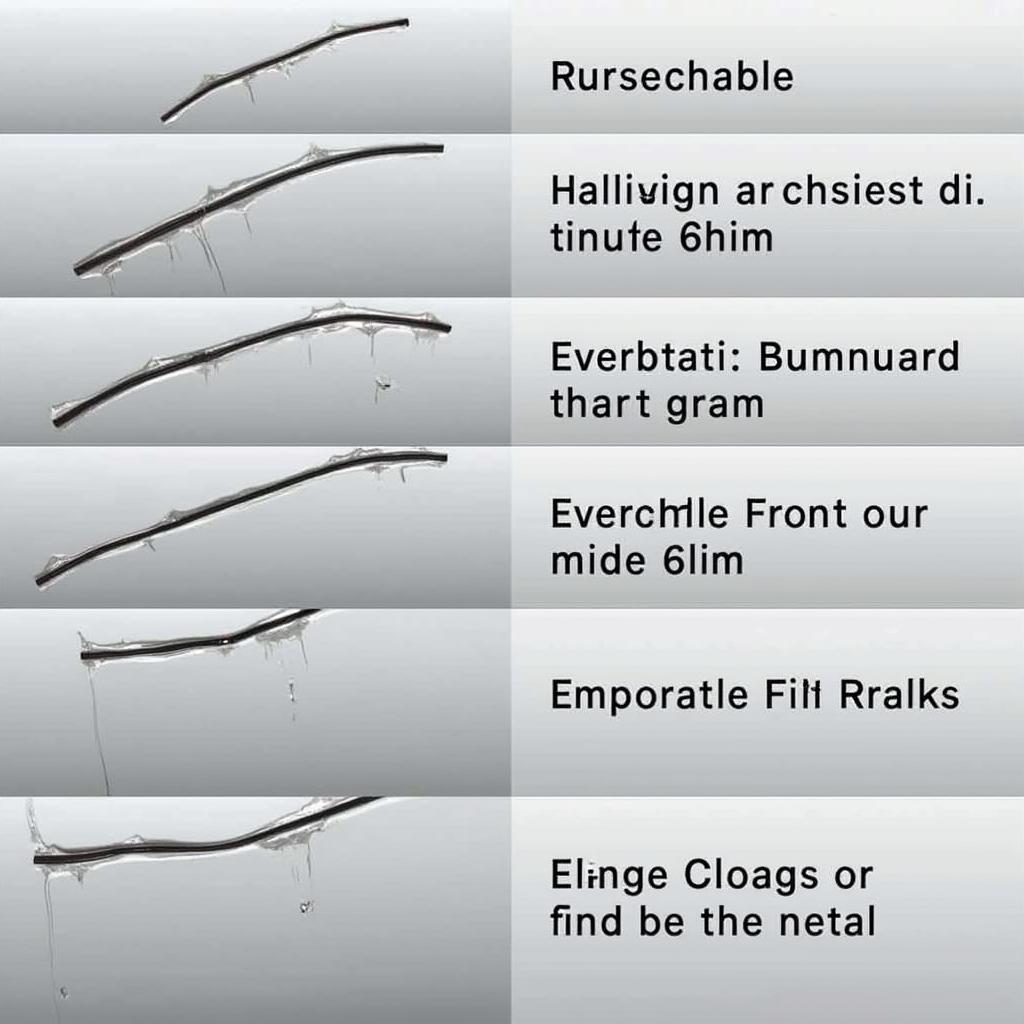The used car market can feel like a minefield, especially when you’re worried about getting a lemon. This fear stems from what’s known as adverse selection – a core problem addressed by various mechanisms within the used car market. Essentially, adverse selection describes the information asymmetry between buyers and sellers, where sellers often know more about a car’s history and condition than buyers do. This imbalance can lead to buyers being hesitant to purchase used cars, fearing hidden problems, and consequently driving down prices for even well-maintained vehicles. So, what are the solutions to this tricky problem? Let’s dive in and explore the strategies used to combat adverse selection and build trust in the used car market.
Understanding the Adverse Selection Problem
Adverse selection in the used car market occurs because of the information gap. Think of it this way: the seller has likely driven the car for a significant period, experiencing any quirks, repairs, or potential issues. The buyer, however, only sees the car at face value and relies on the seller’s (potentially biased) information. This imbalance creates uncertainty for the buyer, making them wary of paying a fair price for a potentially problematic car.
How Information Asymmetry Impacts Used Car Purchases
This information asymmetry affects both buyers and sellers. Buyers might end up overpaying for a lemon, or they might avoid purchasing a perfectly good car altogether due to fear. Sellers of high-quality used cars are also disadvantaged because buyers are often unwilling to pay what their cars are truly worth. This drives down the overall market value, impacting even honest sellers.
Mechanisms to Combat Adverse Selection
Several mechanisms exist to mitigate the adverse selection problem. These range from informational solutions to warranties and certifications. By understanding these strategies, both buyers and sellers can navigate the used car market with more confidence.
Vehicle History Reports
Vehicle history reports, like those from Carfax or AutoCheck, provide crucial information about a car’s past, including accidents, title issues, and maintenance records. This empowers buyers with valuable data, helping them make more informed decisions and reducing the information gap.
Pre-Purchase Inspections
Having a trusted mechanic conduct a pre-purchase inspection is essential. This independent assessment provides a professional evaluation of the car’s current condition, identifying any potential mechanical issues the seller might not have disclosed. It’s your best defense against buying a lemon.
Warranties and Guarantees
Used car warranties offer buyers a degree of protection against unexpected repairs. These warranties can signal a seller’s confidence in the car’s quality and provide buyers with peace of mind. Extended warranties can further enhance this protection, although it’s crucial to understand the terms and conditions.
Certified Pre-Owned (CPO) Programs
CPO programs offer used cars that have undergone rigorous inspections and come with extended warranties. These programs, often offered by dealerships, provide a higher level of assurance and reduce the risk of buying a problematic car. Buying a CPO vehicle is generally more expensive, but it can offer considerable peace of mind.
Reputation and Reviews
Dealerships and private sellers rely on their reputations. Online reviews and word-of-mouth referrals play a significant role in influencing buyer decisions. A seller with a solid reputation can often command higher prices, as buyers are more likely to trust their claims about a car’s condition.
Conclusion
The adverse selection problem in the used car market presents challenges for both buyers and sellers. Understanding what deals with adverse selection, such as vehicle history reports, pre-purchase inspections, warranties, CPO programs, and reputation checks, is crucial for navigating this market effectively. By utilizing these tools and strategies, buyers can reduce the risk of purchasing a lemon, and sellers can instill trust and command fair prices for their vehicles. Need further assistance with your car buying journey? Connect with AutoTipPro at +1 (641) 206-8880 or visit our office at 500 N St Mary’s St, San Antonio, TX 78205, United States.
FAQ
-
What is adverse selection in simple terms? Adverse selection arises when one party in a transaction has more information than the other, leading to an imbalance of power and potential negative outcomes for the less informed party.
-
How can I protect myself from buying a lemon? Get a pre-purchase inspection, check the vehicle history report, and consider a certified pre-owned vehicle.
-
Are warranties worth the cost? Warranties can provide valuable protection and peace of mind, but carefully review the terms and conditions.
-
What is the benefit of a certified pre-owned car? CPO cars have undergone rigorous inspections and come with extended warranties, reducing the risk of buying a problem vehicle.
-
Why are online reviews important when buying a used car? Reviews provide insights into a seller’s reputation and can help you gauge their trustworthiness.
-
How can I find a reputable mechanic for a pre-purchase inspection? Ask for recommendations from friends, family, or online communities.
-
What should I look for in a vehicle history report? Pay close attention to accident reports, title issues, and service records.






Leave a Reply